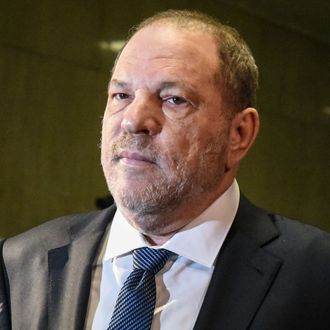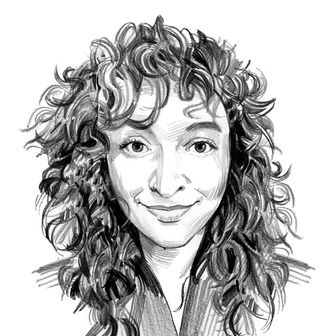
The legal battle over the Harvey Weinstein case is getting even nastier. Prosecutors on Monday claimed that Weinstein’s lawyers are turning the sexual-assault case into a “public circus,” in part because the defense wants to air allegations of police misconduct in court. The Manhattan District Attorney’s Office made the comment in a new filing where they defended their handling of Weinstein’s case before the grand jury. They claimed that the panel that indicted him “was properly instructed on the law” and that “the integrity of the proceedings was unimpaired.” With linguistic flourish, they also slammed repeated attempts on the part of Weinstein’s lawyers to litigate the case in numerous court filings and the press. “The only reason the defendant wants a hearing is to provide a public circus that will further the public relations campaign the defendant has been waging since the outset of his case,” prosecutors charged.
This filing relating to the case’s legal viability is one of several recently exchanged between prosecutors and Weinstein’s defense team. Since Weinstein was indicted in May, his lawyers have repeatedly hurled allegations of wrongdoing in the investigatory and prosecutorial process. They have claimed prosecutors and police didn’t present the grand jury with information that might have cleared Weinstein of charges involving two accusers, including former actress Lucia Evans. They have also claimed that prosecutors’ alleged failure to present this evidence undermines their entire case — requiring that a judge throw the remaining five counts out.
At the center of this controversy is NYPD detective Nicholas DiGaudio, who led the investigation. One of the six sexual-assault-related counts was dismissed in October after it was revealed DiGaudio didn’t disclose alleged discrepancies between Evans’s allegations and a witness. Prosecutors insist that the dismissal of this count hasn’t “infected” the entire case. While there are discrepancies in Evans’s account, there isn’t proof that she lied, prosecutors argued. “At most, it creates an issue of fact as to the credibility of the complaining witness. Such testimony is simply not the type of evidence that impairs the integrity of the Grand Jury process,” they argued.
“The defendant’s myriad arguments in support of dismissal of counts one through five all boil down to the claim that the new information that led to the dismissal of count six must somehow have impaired the integrity of the entire Grand Jury process, requiring the dismissal of every count,” prosecutors also said. “The law, however, is clear and to the contrary.”
Shortly after the Evans bombshell, prosecutors also revealed that DiGaudio told a still-unnamed accuser that she could delete information from her phones before giving them to prosecutors. Ben Brafman, who’s leading Weinstein’s defense, claimed in a November 5 court filing that accuser Mimi Haleyi kept communicating with Weinstein after the alleged July 2006 attack. (Brafman has also claimed there was continued contact between the unnamed accuser and Weinstein after her alleged assault, and that this was also withheld from the grand jury.)
“For example, on February 12 2007 — more than seven months after the alleged incident — Mimi Haleyi texted Mr. Weinstein’s phone with the following message: ‘Hi! Just wondering if u have any news on whether Harvey will have time to see me before he leaves? X Miriam.’” Brafman wrote.
“Given Detective DiGaudio’s penchant for withholding exculpatory evidence that would support Mr. Weinstein’s innocence, it’s likely that Detective DiGuadio purposefully hid the fact from the District Attorney that Mimi Haleyi continued to communicate with Mr. Weinstein after the alleged assault,” Brafman claimed.
“The District Attorney has to date acknowledged at least two instances where Det. DiGaudio’s misconduct has infected this case, one with Lucia Evans and one with [unnamed accuser],” Weinstein’s lawyers also wrote in their recent push to dismiss the remaining five counts. “Counsel has reason to believe that Detective DiGaudio committed misconduct with Mimi Haleyi as well.”
“Critically, the lead investigator’s disclosed misconduct goes to the core of this case — suppression of evidence which revealed that a complaining witness had falsified her allegations of sexual assault,” their argument also claimed.
Prosecutors insist in their new filing, however, that they didn’t commit wrongdoing “nor were the People required to present exculpatory evidence to the Grand Jury.”
They also claim that evidence is lacking with one allegation that DiGaudio tried to sway one accuser’s testimony.
“This argument is based on pure speculation (in fact there is no evidence that [this accuser] ever even met the detective),” prosecutors claim.
Asked for comment on the prosecutors’ filing, Brafman hit back against the “circus” quip, saying in an email that “nothing in the DA’s response gives us any more confidence in the integrity of the Grand Jury’s proceedings, and we anticipate filing a formal reply after the Thanksgiving Holiday. As for the hearing that the People fear will become a ‘circus’ — it is a circus that they created with the DA and the NYPD calling each other liars.”
The NYPD has previously defended its handling of the case in the wake of allegations against DiGaudio, saying in past statements, “The NYPD, working with its partner DANY, is fully confident in the overall case it has pursued against Mr. Weinstein … The evidence shows that the criminal case against him is strong. The NYPD will continue to assist the prosecution any way it can to ensure justice is achieved for these brave survivors.”


